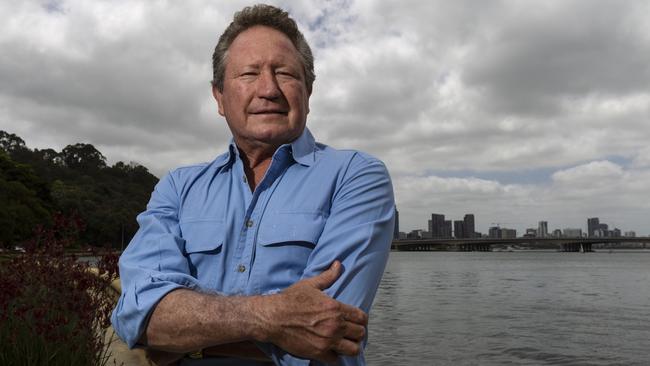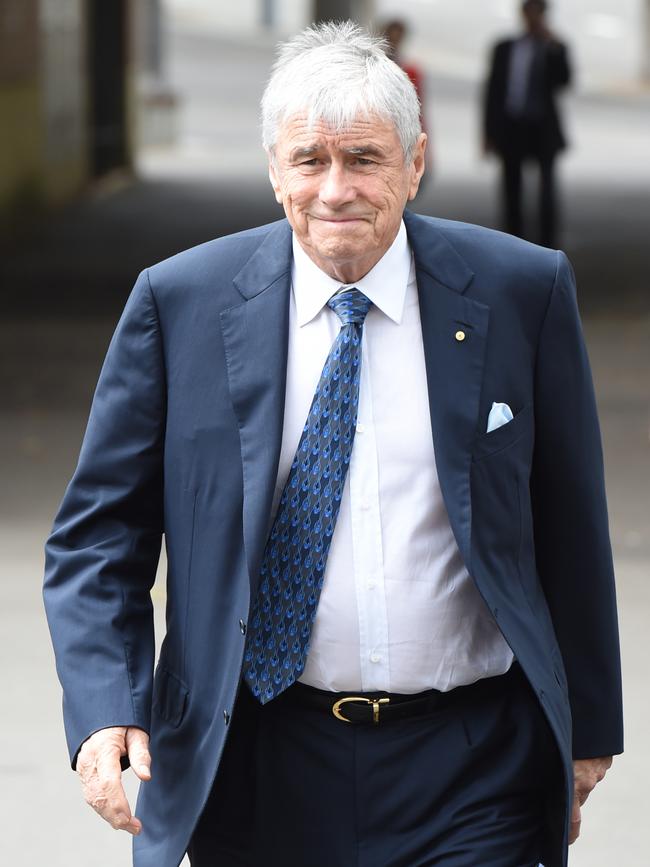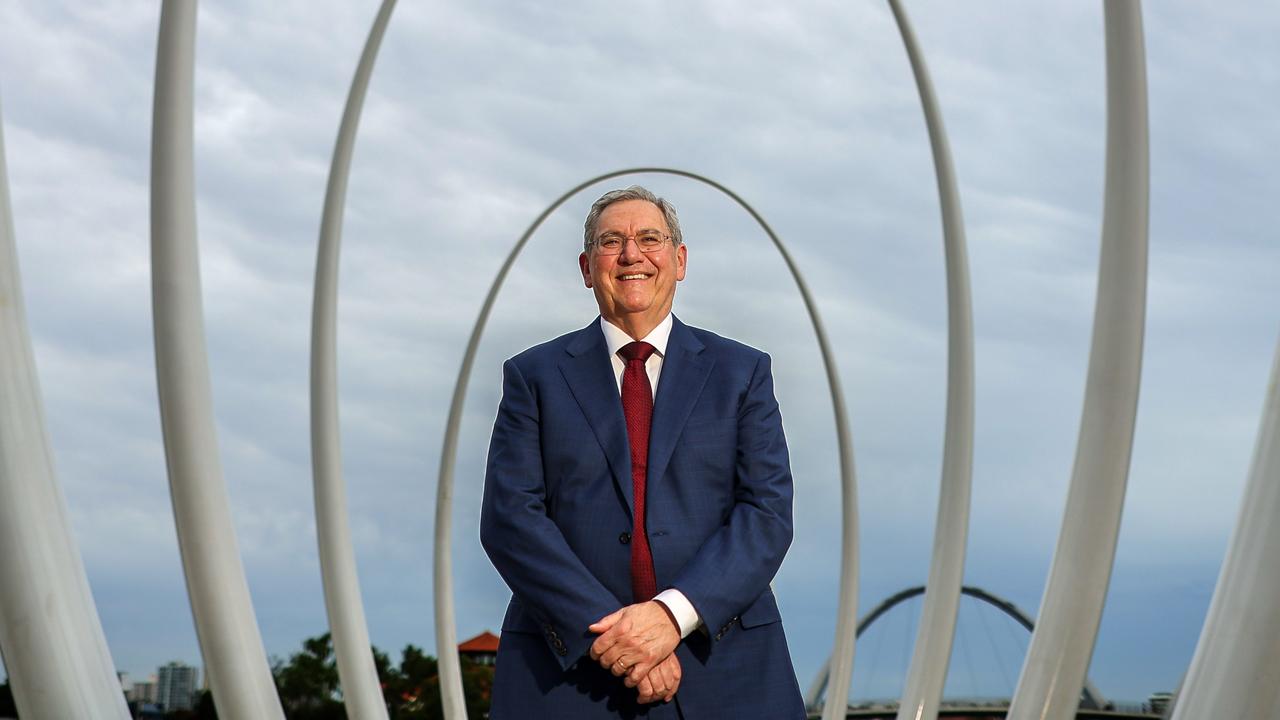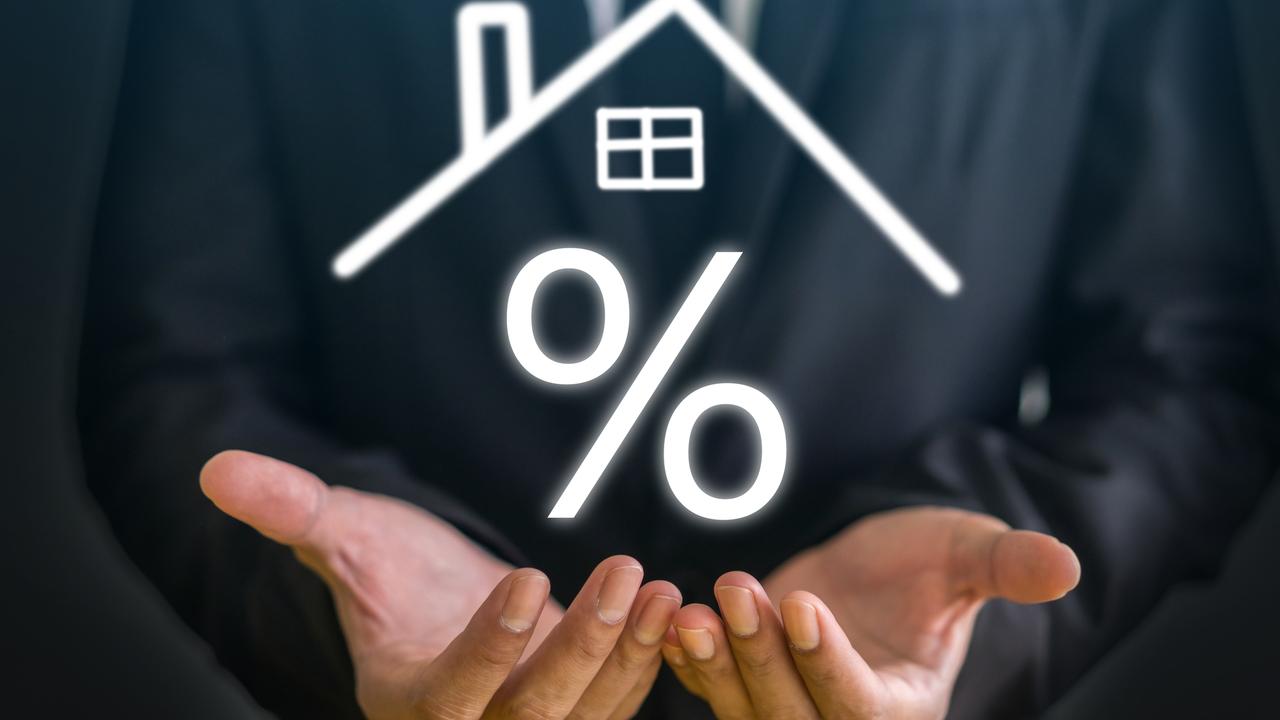China town: coronavirus reveals true power players in the west
Kerry Stokes, Andrew Forrest and their ties to China are a powerful influence in Western Australia.

Last month, as fears about the coronavirus continued to grip the nation, West Australian Premier Mark McGowan unveiled a plan by the state’s two biggest business names — Andrew Forrest and Kerry Stokes — to overhaul the derelict East Perth power station on the banks of the Swan River.
The $218m plan for the site, a grand old building on a prime riverfront location between the city’s eastern fringe and the gleaming Optus Stadium, was dutifully splashed on the front page of Stokes’s The West Australian newspaper.
The Forrest-Stokes consortium had beaten four other proposals for the project, with the state government announcing it would tip $50m into the plan to help start site works.
The plan in many ways is a microcosm of the circular relationships and interdependency at play at the upper levels of the state.
Those tight ties and shared motivations in Western Australia’s business, political and media world were again on display this week as Forrest, Stokes, McGowan and WA’s senior-most federal Liberal MP, Finance Minister Mathias Cormann, queued up to call for calm amid a deepening crisis in the relationship between Australia and its single-biggest trading partner, China.
McGowan is facing the same difficult balancing act that every WA premier has had to battle, namely how to juggle the influence of the state’s business barons with the broader interest of the state and country. The bulk of the time, those interests are aligned: the state’s thriving industries have generated enormous amounts of wealth and jobs for WA and has made the state Australia’s brightest economic star.

But when that balance is lost, the damage can be enormous. The state’s most infamous period — the WA Inc era of the 1980s — featured another wildly popular Labor premier and two high-flying businessmen who dominated the state. Premier Brian Burke and business moguls Alan Bond and Laurie Connell would all eventually spend time in jail, and the saga is the root of the “Wild West” stereotype that has dogged the state in subsequent decades.
The current climate in WA is miles away from those heady days, and The Australian is not alleging any impropriety or misconduct whatsoever by any of the parties. Rather, the coronavirus crisis has stripped WA of its clothes and fat, bringing into sharper relief the bones and muscle that have always held its body together.
Forrest’s championing of China was hardly new. His iron ore miner Fortescue Metals, which underpins almost the entirety of his $12bn fortune and which has delivered him about $2bn in dividends over the past 18 months, sells virtually all its production to Chinese steelmakers.
In turn Stokes, through his ownership of WesTrac, sells giant yellow Caterpillar trucks and other equipment to Fortescue, BHP and Rio Tinto, all of whom are overwhelmingly reliant on that Chinese iron ore demand.
Likewise, the royalties from that iron ore production is the single-biggest source of income for the state itself. McGowan’s ability to manage the state budget and stimulate the economy is reliant on WA selling as much iron ore as possible.
The perception of WA as a cosy hub of mates looking after mates would only have been boosted by the news that Stokes had been exempted from having to serve out his mandatory two-week quarantine confined to a Perth hotel room. Instead, the mogul was permitted to serve his time in the comfort of his Dalkeith mansion after returning to Australia from coronavirus hotspot Colorado.
Stokes’s office says he was granted the exemption like “thousands” of others due to an unspecified medical procedure, while the government only learned of the exemption after it had been granted by police and health authorities.
McGowan, as any good premier should do, regularly meets with senior business leaders including Forrest and Stokes. In the case of the latter, though, the dynamic is made all the more complex by his ownership of the state’s only daily newspaper. That McGowan enjoys largely positive coverage in The West Australian is not entirely surprising, given he has hardly put a foot wrong in his response to the coronavirus outbreak. The Australian’s Newspoll last week found he enjoyed an unprecedented satisfaction rating of 89 per cent.
But it was telling on Thursday when, as papers such as News Corp’s The Australian and Nine Entertainment’s Sydney Morning Herald splashed their front pages with the news of Forrest’s decision to “ambush” federal health minister Greg Hunt by bringing a Chinese diplomatic official to a press conference, the story was conspicuous in its absence from The West.
Instead, readers found a front-page splash followed by a double-page spread in which Stokes called on Scott Morrison to patch up Australia’s relationship with China, argued for Australia to engage controversial Chinese telecommunications firm Huawei in the rollout of 5G technology, and echoed Forrest’s call for any international inquiry into the coronavirus outbreak to wait until after the US election in November. The story, which described Stokes as “a fiercely proud West Australian”, disclosed his chairmanship of The West Australian and noted he had investments in China.
The stunt Forrest pulled this week was simply a repeat of the same one he pulled last month, when a maiden shipment of PPE and medical gear secured by Forrest’s Minderoo Foundation arrived in Perth. Forrest surprised the state’s health minister, Roger Cook, by calling up the Chinese consul-general in Perth, Dong Zhihua, to speak.
There was little fuss in Perth about the move, in part because the economic reliance on China is better understood in WA.
A quarter of the state’s economy relies directly on trade with China. The chances are that in WA, if you don’t work for a company that is heavily exposed to China, someone in your family or circle of friends does. The wealth generated from the China relationship is apparent in the higher average incomes in WA, and the new hospitals, stadium and other public infrastructure in Perth.
That mutual benefit is less apparent in the eastern states, which in part explains the sudden backlash against Forrest this week. On top of that, there has long been a persistent undercurrent of suspicion towards China felt by many Australians, and the coronavirus has made it more acceptable to air those fears.
There’s a time to push for closer ties to China and advocate the importance of respect. But, as Forrest and Stokes discovered this week, when millions of Australians have just spent weeks locked in their homes, when hundreds of thousands have suddenly lost their jobs, when the economy has sunk and the government has tumbled deep into debt, now may not be the best time to try to talk Australians out of seeking answers from China.
Forrest is a masterful promoter. Those skills helped him build an incredible business from the leases that the incumbent heavyweights had deemed third-rate, and have helped him build a phenomenal global network.
He is a man of unshakeable self-belief, even amid criticism, controversy and failure. He has faced far bigger crises than this: the debacle of his first trouble-plagued mining venture, Anaconda Nickel; his legal pursuit by ASIC, ironically after Chinese firms abandoned commitments to help build Fortescue’s infrastructure; and Fortescue’s debt crisis when iron ore prices crashed in 2012-13. Every time, Forrest has found a way through, come back bigger and stronger than before, and those deep and longstanding ties in WA will prove robust.
But the cache he spent years building in Canberra will be harder to win back.




To join the conversation, please log in. Don't have an account? Register
Join the conversation, you are commenting as Logout